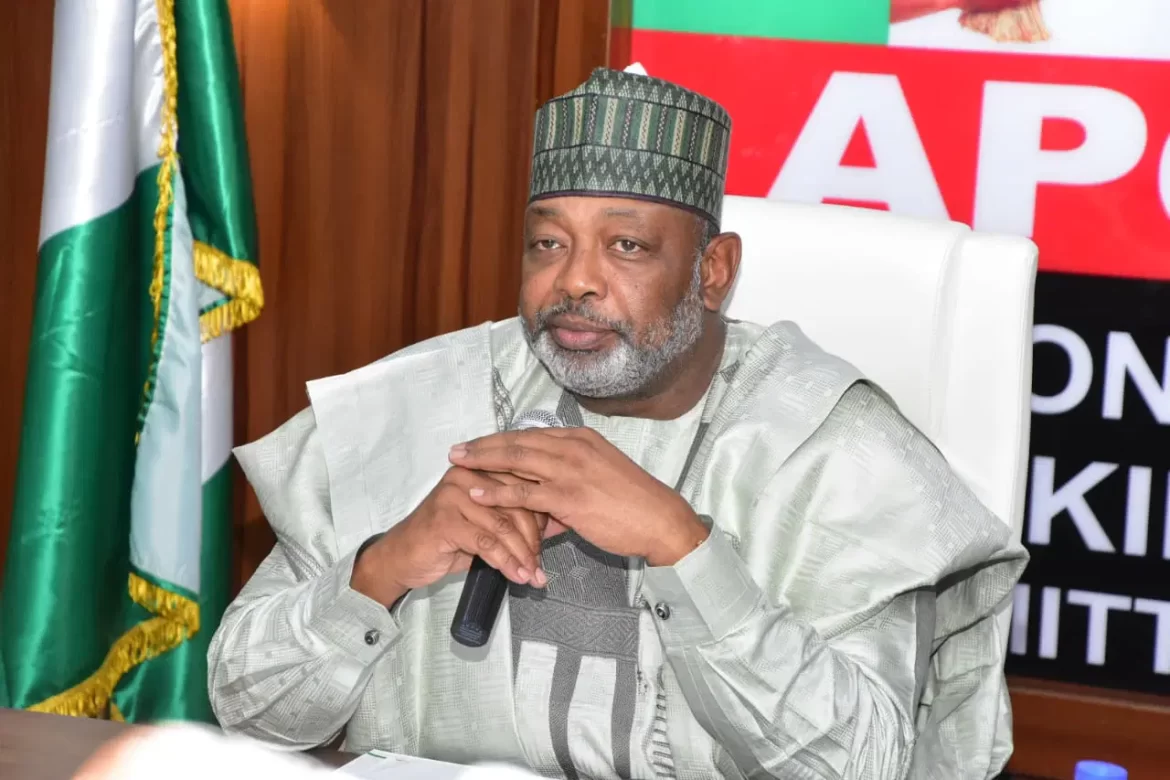619
By Daniel Adaji
The Minister of Agriculture and Food Security, Senator Abubakar Kyari, has said that the implementation of the National Agricultural Technology and Innovation Policy (NATIP) will accelerate growth in the nation’s agricultural ecosystem.
He added that the policy will expand access to modern inputs, and make farming more attractive and competitiveparticularly for young people and women.
Speaking in Abuja at the High-Level Policy Dialogue themed “Bridging the Gap, Access to Finance, Empowering Youth and Women for Agribusiness Success”, organised by the African Development Bank, the Minister described NATIP as a vital driver for agricultural transformation.
According to him, “With NATIP, we are building that system, one that supports youth innovation, unlocks productivity, and rewards ambition. We must now ensure it delivers at scale.”
In a statement on Wednesday by Ezeaja Ikemefuna, Assistant Director of Information at the ministry, Kyari explained that NATIP provides the strategic policy backbone for transitioning agriculture into a tech-enabled, youth-driven sector, while promoting mechanization, digital agriculture, and strong research-commercialization linkages.
The minister revealed that the Federal Government’s National Agribusiness Policy Mechanism (NAPM) launched in May and coordinated by the Presidential Food Systems Coordination Unit (PFSCU) is also geared toward this transformation.
“To translate these bold institutional reforms into real impact, we must now set clear delivery expectations. That means establishing annual lending targets for youth and women-led agribusinesses,” he said.
He emphasised that access must be widened through guarantees that do not inflate fees.
“It means financing cash flows, not just collateral. And it means equipping entrepreneurs not only with credit, but with the capabilities to absorb and grow that capital,” he added.
So far, he noted, the initiative has reached approximately 250,000 farmers across several states – an early indication of its potential if driven by political will and strong coordination.
Speaking on the broader national context, Kyari referenced President Bola Tinubu’s Renewed Hope Agenda, which prioritizes food security and job creation as interconnected levers for economic diversification, social stability, and national sovereignty.
“This agenda affirms the right to feed ourselves with what we grow, process, and add value to. Food sovereignty means reclaiming control over food systems, reducing reliance on imports, and investing in the strength of Nigerian farmers, processors, and agribusinesses as the foundation of national resilience,” Kyari said.
He stressed the need to unlock the full productive power of Nigerian youth and women in agriculture.
To support this vision, Kyari disclosed that the National Agricultural Development Fund (NADF) is already active and forming partnerships to fund climate-smart agriculture, aggregation centers, storage hubs, and rural logistics systems.
He also announced a significant step forward: “President Bola Ahmed Tinubu, GCFR, has approved the recapitalization of the Bank of Agriculture (BOA) with 1.5 Trillion Naira – approximately 1 Billion US Dollars – marking the most significant boost to agricultural finance in Nigeria’s history.”
According to him, the recapitalization will reposition the BOA as a dynamic development finance institution with a deliberate focus on youth and women-led agribusinesses through accessible credit and capacity-building support.



